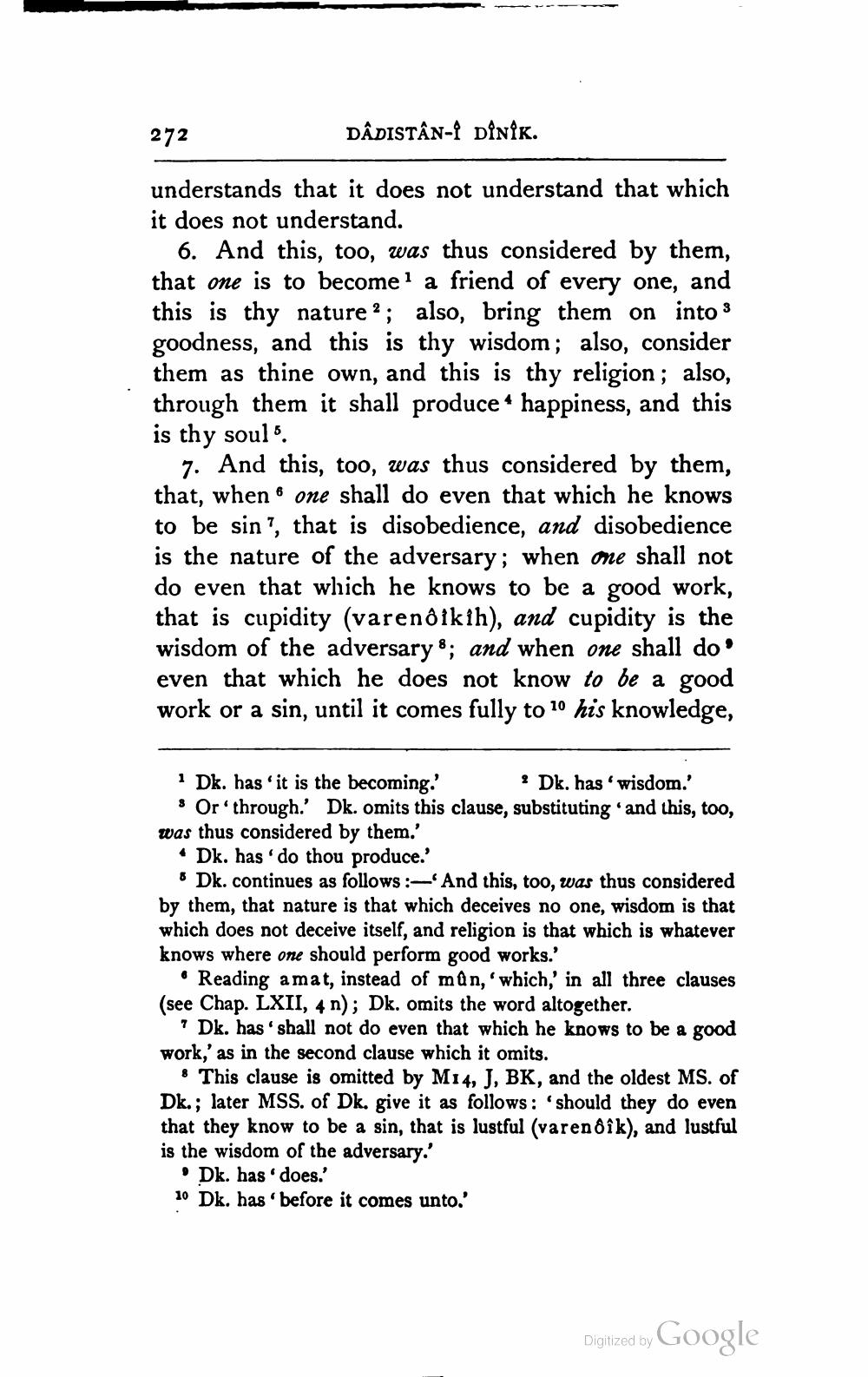________________
272
DÂDISTÂN-I DÎNÍK.
understands that it does not understand that which it does not understand.
6. And this, too, was thus considered by them, that one is to become a friend of every one, and this is thy nature ?; also, bring them on into 3 goodness, and this is thy wisdom; also, consider them as thine own, and this is thy religion ; also, through them it shall produce* happiness, and this is thy soul.
7. And this, too, was thus considered by them, that, when one shall do even that which he knows to be sin?, that is disobedience, and disobedience is the nature of the adversary; when one shall not do even that which he knows to be a good work, that is cupidity (varenốikih), and cupidity is the wisdom of the adversary 8; and when one shall do even that which he does not know to be a good work or a sin, until it comes fully to 10 his knowledge,
1 Dk. has it is the becoming.' ? Dk. has 'wisdom.'
8 Or through.' Dk. omits this clause, substituting and this, too, was thus considered by them.'
• Dk. has do thou produce.'
8 Dk. continues as follows:-'And this, too, was thus considered by them, that nature is that which deceives no one, wisdom is that which does not deceive itself, and religion is that which is whatever knows where one should perform good works.
• Reading a mat, instead of man,' which,' in all three clauses (see Chap. LXII, 4 n); Dk. omits the word altogether.
Dk. has shall not do even that which he knows to be a good work,' as in the second clause which it omits.
% This clause is omitted by M14, J, BK, and the oldest MS. of Dk.; later MSS. of Dk. give it as follows: 'should they do even that they know to be a sin, that is lustful (varendik), and lustful is the wisdom of the adversary.'
Dk. has does.' 10 Dk. has before it comes unto.'
Digitized by Google




